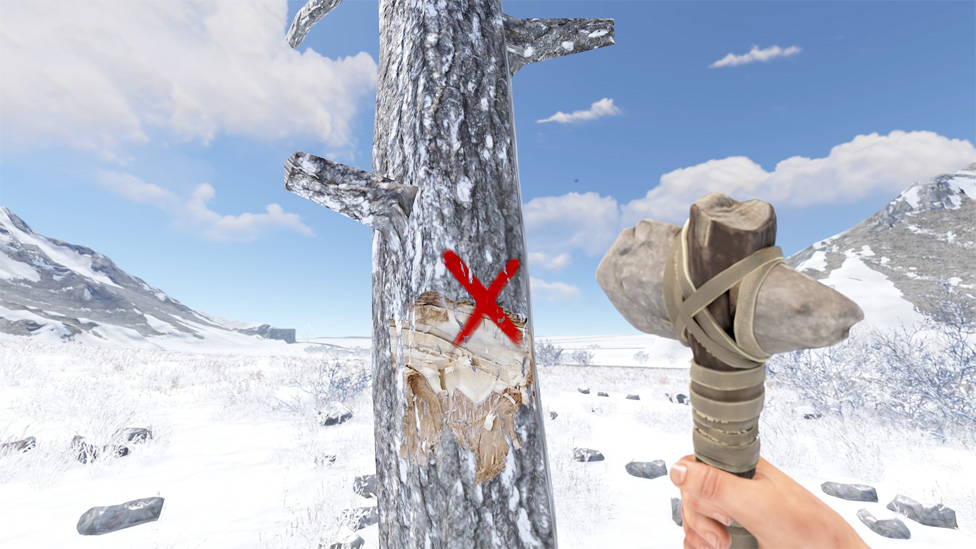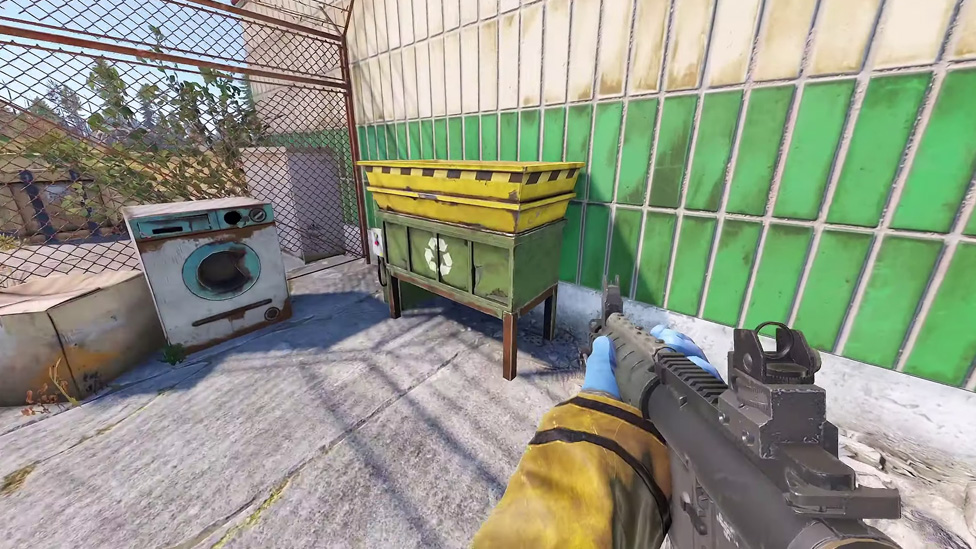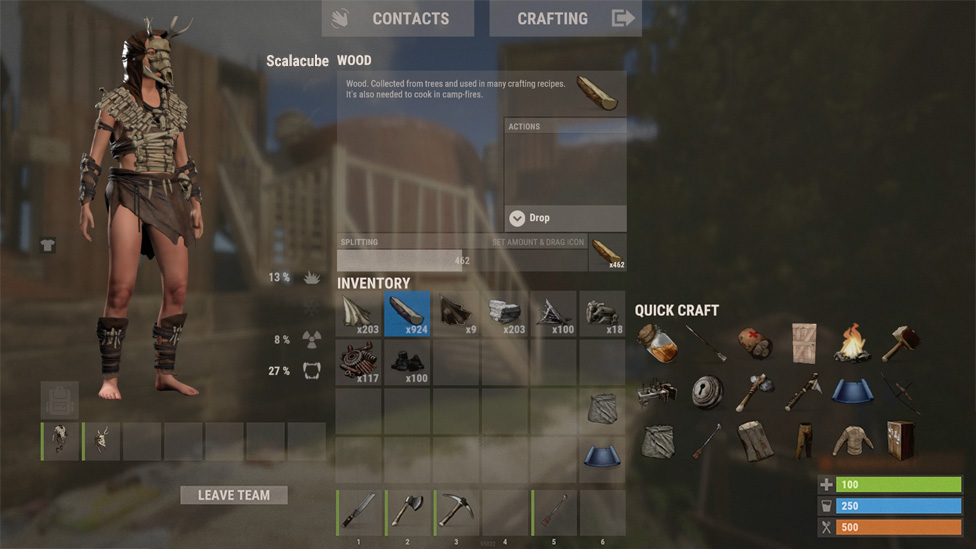Rust Components Guide
Want to win at Rust, a survival game? Get lots of resources. You'll need Rust Components. In this guide, we'll tell you about all the different types of components, how to use them, and why they're so important.

Playing well in Rust means knowing all about its many components. Everything from simple survival tools to fancy gear matters. So, let's find out all about Rust Components and use this information to conquer the game’s challenges.
Experience flawless multiplayer gaming with our tweaked Rust MP hosting solutions. How do I make a Rust server? Scalacube makes it simple with easy-to-understand tools and unmatched support.
Our Rust dedicated servers prioritise efficiency, guaranteeing low-delay connections and superior stability. Leave server-related issues behind and focus on mastering the Rust gaming environment. Trust Scalacube for your Rust hosting needs, providing dependability and unrivalled performance. Boost your Rust multiplayer sessions with Scalacube—where hosting matches brilliance.
Rust Components: Types and Uses
The Basics of Components in Rust's Crafting System
The basic components are the centre of Rust's crafting system. You'll find items like wood, stone, cloth, and metal fragments. You can craft tools, weapons, and simple shelters with these. Knowing how to find these basic components is essential for surviving the first part of the game. It lays the groundwork for a successful journey in Rust's wilderness.
The Advanced Components in Rust
In Rust, progressing players naturally seek more complex parts. Gears, springs, and metal blades become key as you craft advanced weapons, tools, and gear. Players often find these parts in high-risk areas like rad towns and military tunnels. This adds an exciting layer of strategy to gameplay. A true Rust veteran knows how to find and use these advanced components, helping them succeed in a tough and changing game environment.
Understanding Rust's Electronic Parts
In the high-tech world of Rust, electronic components matter a lot. CCTV cameras, targeting computers, and tech trash fall into this category. They're needed for crafting high-tech defenses like auto turrets and security systems. If you secure these electronic parts, you boost your tech skills and gain a tactical edge. As Rust players compete for control, understanding electronic components becomes the key to crafting impressive defenses and weapons. This helps set your place in Rust's digital age.
Finding and Collecting Components
Resource Spots
Simpler materials like wood and stone come from resource spots throughout the game world. Use tools like hatchets and pickaxes to gather these basic crafting and building blocks effectively.
Recycling Hubs

In radtowns, players find recycling hubs. They're for getting different parts. Unwanted things change into useful materials such as gears, springs, and metal pieces. The trick is picking the right stuff to recycle for the best part gathering.
Monument Trips
Monuments like military tunnels and power plants are high-risk spots. They could have better parts and electronic pieces. It's not easy though, with other players and angry NPCs guarding the good stuff.
Making Progress and Things with Rust Parts
Benchwork
Players use workbenches to make parts into things in Rust. More game progress means higher-level workbenches. These show more complex recipes. Getting workbenches helps to get top equipment.
Blueprint Learning
Rust has a blueprint system that works well with part making. It shows how to make certain items. If you collect and learn blueprints, you can make more varied things. This can improve your chances and skills in survival.

Ways to Advance
Knowing how to move forward in Rust is a big help. It's important with how you use parts. You could want a fighting style or advanced base making. Either way, your success depends on how you collect and use parts for your goal.
Are you looking for the best Rust server hosting? You're in the right place! At Scalacube, our job is to give excellent services to avid Rust server fans. Whether you're an experienced player or a beginner, our devoted servers are created to cover all your Rust hosting requirements.
Experience flawless multiplayer gaming with our tweaked Rust MP hosting solutions. How do I make a Rust server? Scalacube makes it simple with easy-to-understand tools and unmatched support.
Our Rust dedicated servers prioritize efficiency, guaranteeing low-delay connections and superior stability. Leave server-related issues behind and focus on mastering the Rust gaming environment. Trust Scalacube for your Rust hosting needs, providing dependability and unrivalled performance. Boost your Rust multiplayer sessions with Scalacube—where hosting matches brilliance.

Make Your Own Rust Server
Playing well in Rust means knowing all about its many components. Everything from simple survival tools to fancy gear matters. So, let's find out all about Rust Components and use this information to conquer the game’s challenges.
Experience flawless multiplayer gaming with our tweaked Rust MP hosting solutions. How do I make a Rust server? Scalacube makes it simple with easy-to-understand tools and unmatched support.
Our Rust dedicated servers prioritise efficiency, guaranteeing low-delay connections and superior stability. Leave server-related issues behind and focus on mastering the Rust gaming environment. Trust Scalacube for your Rust hosting needs, providing dependability and unrivalled performance. Boost your Rust multiplayer sessions with Scalacube—where hosting matches brilliance.
Rust Components: Types and Uses
The Basics of Components in Rust's Crafting SystemThe basic components are the centre of Rust's crafting system. You'll find items like wood, stone, cloth, and metal fragments. You can craft tools, weapons, and simple shelters with these. Knowing how to find these basic components is essential for surviving the first part of the game. It lays the groundwork for a successful journey in Rust's wilderness.
The Advanced Components in Rust
In Rust, progressing players naturally seek more complex parts. Gears, springs, and metal blades become key as you craft advanced weapons, tools, and gear. Players often find these parts in high-risk areas like rad towns and military tunnels. This adds an exciting layer of strategy to gameplay. A true Rust veteran knows how to find and use these advanced components, helping them succeed in a tough and changing game environment.
Understanding Rust's Electronic Parts
In the high-tech world of Rust, electronic components matter a lot. CCTV cameras, targeting computers, and tech trash fall into this category. They're needed for crafting high-tech defenses like auto turrets and security systems. If you secure these electronic parts, you boost your tech skills and gain a tactical edge. As Rust players compete for control, understanding electronic components becomes the key to crafting impressive defenses and weapons. This helps set your place in Rust's digital age.
Finding and Collecting Components
Resource SpotsSimpler materials like wood and stone come from resource spots throughout the game world. Use tools like hatchets and pickaxes to gather these basic crafting and building blocks effectively.
Recycling Hubs

In radtowns, players find recycling hubs. They're for getting different parts. Unwanted things change into useful materials such as gears, springs, and metal pieces. The trick is picking the right stuff to recycle for the best part gathering.
Monument Trips
Monuments like military tunnels and power plants are high-risk spots. They could have better parts and electronic pieces. It's not easy though, with other players and angry NPCs guarding the good stuff.
Making Progress and Things with Rust Parts
BenchworkPlayers use workbenches to make parts into things in Rust. More game progress means higher-level workbenches. These show more complex recipes. Getting workbenches helps to get top equipment.
Blueprint Learning
Rust has a blueprint system that works well with part making. It shows how to make certain items. If you collect and learn blueprints, you can make more varied things. This can improve your chances and skills in survival.

Ways to Advance
Knowing how to move forward in Rust is a big help. It's important with how you use parts. You could want a fighting style or advanced base making. Either way, your success depends on how you collect and use parts for your goal.
Rust Components: Common Questions
Where do I get basics like wood and stone in Rust?
You find wood and stone in game spots called resource nodes. Hatchets and pickaxes help you collect.
Why use recycling centers in Rust?
In Rust's radtowns, recycling centers transform trash into treasure. Gears, springs, and metal pieces are oft-recovered materials.
Where do I find electronic stuff for complex crafts?
High-risk areas, such as military tunnels and powerhouses, have electronics. You'll find CCTV cameras and tech trash, needed for complex crafts.
What's the job of workbenches in Rust?
Workbenches are crafting spots. They let players turn components into items. Better workbenches open up more complex crafting recipes, boosting your skills.
Wrap-Up
Understanding Rust Components is needed if you want to win at this game. From getting early essentials, aiming for higher-level items, or delving into electronics—understanding is key. With strategic collection, recycling, and crafting, you'll up your survival odds and conquer the tough landscapes of Rust.Are you looking for the best Rust server hosting? You're in the right place! At Scalacube, our job is to give excellent services to avid Rust server fans. Whether you're an experienced player or a beginner, our devoted servers are created to cover all your Rust hosting requirements.
Experience flawless multiplayer gaming with our tweaked Rust MP hosting solutions. How do I make a Rust server? Scalacube makes it simple with easy-to-understand tools and unmatched support.
Our Rust dedicated servers prioritize efficiency, guaranteeing low-delay connections and superior stability. Leave server-related issues behind and focus on mastering the Rust gaming environment. Trust Scalacube for your Rust hosting needs, providing dependability and unrivalled performance. Boost your Rust multiplayer sessions with Scalacube—where hosting matches brilliance.
Make Your Own Rust Server
Copyright 2019-2026 © ScalaCube - All Rights Reserved.